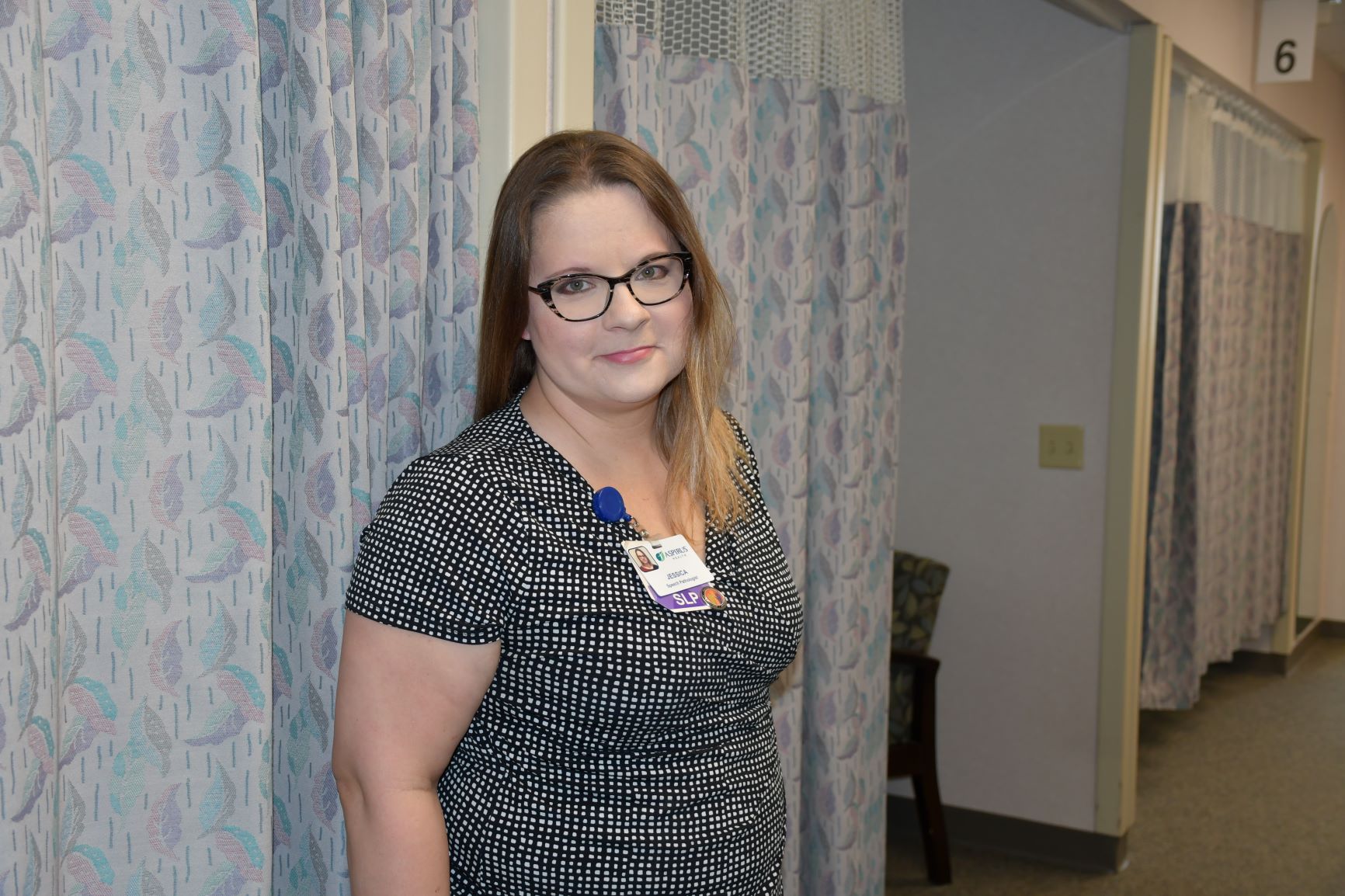Communication and swallowing difficulties affect all ages | Press room
May is National Hearing and Speech Month for Better Hearing, and the Aspirus Health Speech and Language Team encourages anyone with communication or swallowing issues to seek an evaluation. Communication and swallowing disorders are common in children and adults, but many don’t realize they can be treated.
“Speech-language pathologists work daily with people in settings such as schools, private practices, medical facilities, and even their own homes to improve their speech, language, social, and cognitive abilities,” said Jessica Hoffman, speech-language pathologist. at Aspirus Stevens Point Hospital Therapy Service. “A person’s communication skills are essential at every stage of life – for young children, as a solid foundation for language and literacy; for children of school age, as a condition of academic and social success; and for adults, as a key part of their careers and personal relationships.
Hoffman added, “Even less well known is the role speech therapists play in helping people swallow and eat safely. Again, problems in these areas can occur at any age, but at any time, safe swallowing and eating are essential to a person’s health and quality of life.
Communication and swallowing disorders can occur for a variety of reasons. In children, it may be due to low birth weight, congenital syndromes, developmental disorders, injuries or diseases. In adults, they are common in those who have suffered stroke, brain injury, head and neck cancer, and neurodegenerative diseases. Although the specific challenges people face can vary greatly, one common thread is that most people can get better with the help of a speech therapist.
Here are some specific areas where speech-language pathologists work with children, students, and patients.
- Speech – People with speech impediments may not say sounds clearly or smoothly. This can make it difficult for others to understand them.
- Tongue – A person with a language disorder may have difficulty expressing themselves, understanding others and reading and/or writing.
- cognition- It can involve difficulties with attention, memory, problem-solving abilities, organizational skills, and judgment.
- Voice – Hoarseness, breathing, pain, frequent coughing, and other problems with a person’s voice can result from medical issues or from overuse or misuse. Certain professions – such as teachers, musicians and coaches – are at higher risk.
- Augmentative and Alternative Communication – People may need or choose to use ways to communicate other than talking. These include no- or low-tech and high-tech options such as pointing or gestures, using picture boards, and using speech-generating devices.
- Feeding and swallowing – Difficulties may include coughing or retching during meals, food or liquid leaking out of the mouth, or food getting stuck in the mouth or throat. These difficulties can arise due to premature birth, developmental disabilities, medical conditions, or illnesses and injuries.
- Gender-Affirming Voice and Communication – This area can focus on pitch, tone, vocal health, non-verbal communication, etc.
- Communication Coaching – Some speech therapists help with public speaking and communication style, which may include learning another accent.
If you or a loved one have concerns about a speech, language, or swallowing disorder, speak to your doctor about a referral for an evaluation. For more information on speech, language and swallowing disorders, visit aspirus.org/therapies.


Comments are closed.